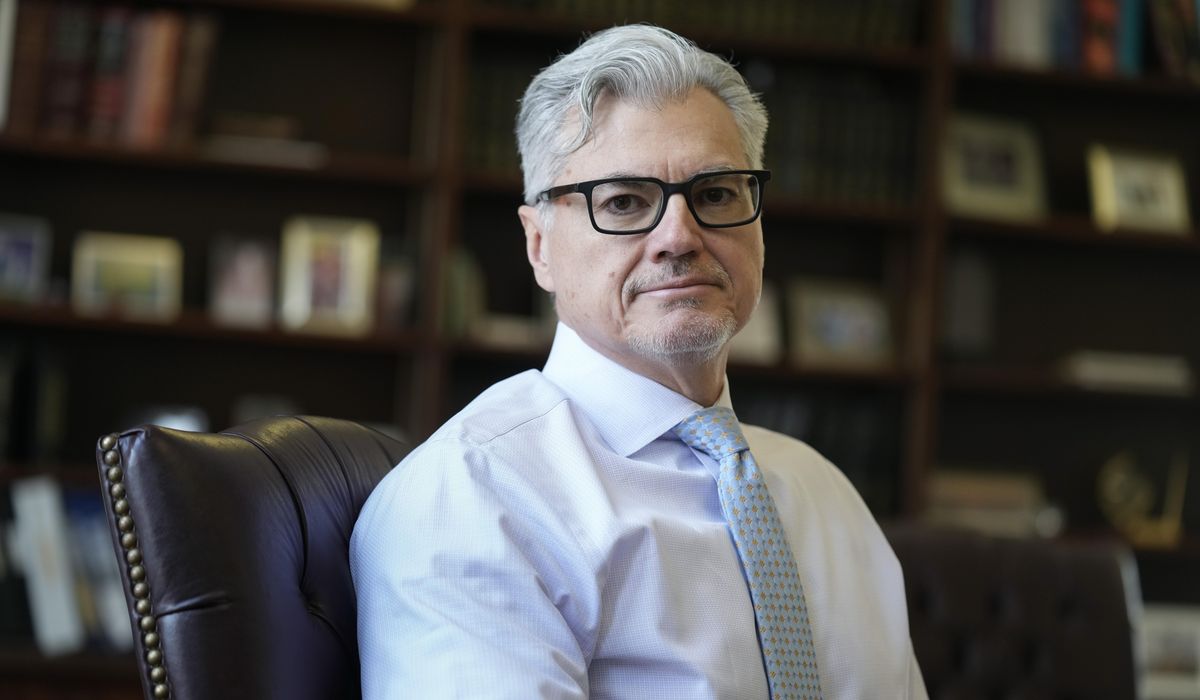


New York State Supreme Court Judge Juan Merchan has made a series of decisions in former President Donald Trump’s hush money trial that helped prosecutors, legal experts say, and the biggest one was allowing “the trial of the century” to proceed.
There is broad agreement that greenlighting a trial about business records fraud — a state misdemeanor elevated to a felony for covering up an unidentified federal campaign finance violation or some other crime — put Manhattan District Attorney Alvin Bragg outside his realm.
The feds, not a local prosecutor, should prosecute a campaign finance crime if such a charge was warranted, said University of California, Berkeley, professor John Yoo, a former Justice Department official.
“The most important decision that Judge Merchan made was his failure to reject the D.A.’s backdoor effort to enforce federal election law, which is unconstitutional,” he said. “If Merchan had reached the proper conclusion, he would have dismissed the entire indictment and the case would never have gone to trial.”
Joseph Moreno, a former federal prosecutor, agreed.
“Every significant legal and evidentiary ruling that Judge Merchan made in this case was to the advantage of the prosecution, starting with the very premise of the case,” he said.
He said Mr. Bragg’s “bare-bones indictment” listed 34 felony charges but did not specify what crime Mr. Trump was allegedly concealing. Mr. Bragg only offered a “vague theory” that Mr. Trump’s accounting entries were done to hide federal and state crimes.
“But without any specifics as to how these laws were supposedly violated (or intended to be violated), this case should have failed as deficient under the Fifth Amendment’s due process right of an accused to be adequately informed so that a defense may be prepared,” Mr. Moreno said in an email to The Washington Times.
Most recently, Judge Merchan’s decision on what instructions to give the jury, which could determine the verdict, require a unanimous finding that Mr. Trump falsified business records to commit or conceal another crime. But jurors don’t have to agree on what that other crime was.
Mr. Trump fumed over the jury instructions, which will be given to jurors after closing arguments.
“This Judge, whose conflicts are completely disqualifying, isn’t even requiring a unanimous decision by the jury on key portions of this Criminal Hoax, which is UNCONSTITUTIONAL AND UNAMERICAN,” Mr. Trump wrote on Truth Social.
Jurors are set to return to the courtroom for closing arguments on Tuesday and could soon begin deliberations to decide if — for the first time in the nation’s history — a former president will be convicted of a crime.
Not all of Judge Merchan’s orders have been pro-prosecution. He did not allow the prosecution to play the infamous Access Hollywood tape of Mr. Trump bragging about grabbing women’s private parts.
The judge also did not let the jury know Mr. Trump was held in contempt nearly a dozen times for violating a gag order on talking about witnesses, jurors or some others connected to the trial.
Still, the list of pro-prosecution decisions that legal experts said Judge Merchan made included:
• Allowing Ms. Daniels to testify without boundaries. The judge allowed her to detail in a graphic detail her alleged sexual encounter with Mr. Trump. The judge later denied a defense motion for a mistrial over the testimony, saying the defense should have objected during the witness’s testimony.
• Judge Merchan imposed strict limits on the testimony of a former federal elections commissioner in defense of Mr. Trump, prompting the former president’s legal team not to call the witness. The defense wanted expert testimony about whether a nondisclosure agreement would constitute a campaign finance violation.
• The judge’s gag order prohibiting Mr. Trump from commenting about witnesses was another pro-prosecution move. It allowed his former lawyer and key state witness Michael Cohen, his former lawyer, and Ms. Daniels to repeatedly bash him during the proceedings without a response from Mr. Trump.
Mr. Trump is charged with using lawyer Michael Cohen to pay $130,000 to porn star Stormy Daniels before the 2016 election because she was shopping around a story about an alleged sexual encounter with Mr. Trump in Lake Tahoe in 2006.
Mr. Trump has denied the affair.
• Alex Swoyer can be reached at aswoyer@washingtontimes.com.
